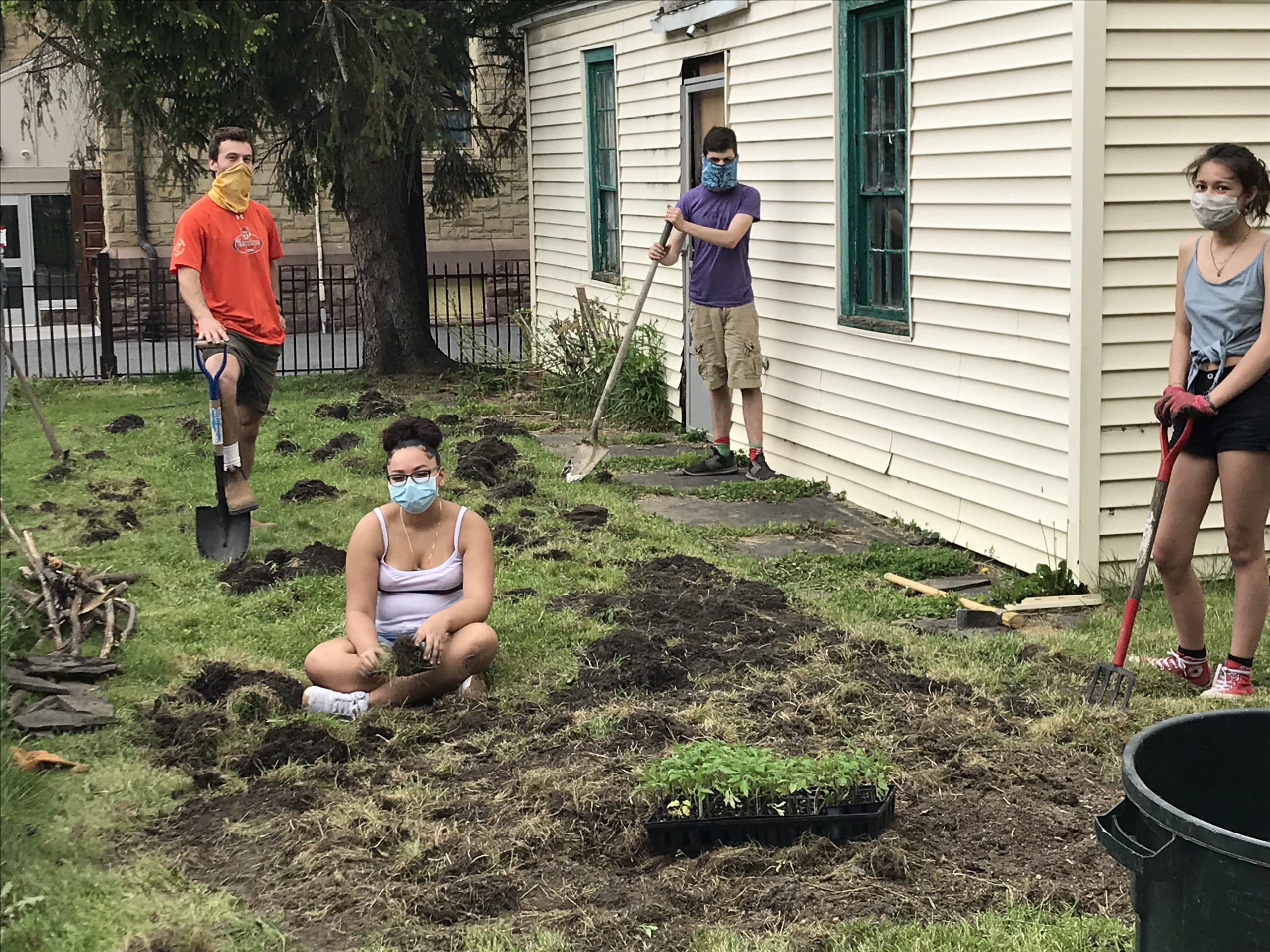
New Roots Charter School Addresses Student Health and Well-Being During COVID-19
When COVID-19 closed the doors of New Roots Charter School, the first concern was the health and well-being of students who would be missing one another, their teachers, and access to essential services and supports.
“For the adolescents we serve, positive social engagement is a core aspect of their well-being,” said Dean of Students Jhakeem Haltom, MSW. “Their sudden social isolation combined with fear of illness, economic disruption, and disruption in their progress toward educational goals created immediate challenges to their well-being.” Haltom is leading the school’s effort to engage 100% of students and families and ensure learning continues. This includes making sure that students and families have access to supports like mental health services and food delivery, as well as solving problems around issues like Internet access and student resistance to online learning.
Within one week, New Roots teachers and staff had reached out to every student and family, and teachers held their first online “crew” meetings to launch an interdisciplinary project about the pandemic. “Crew meetings give students continuity in their relationships and their connection to school, and a safe space to talk about their experience,” said Danielle Angie, grade nine teacher and team leader. “Learning about COVID-19 and its impact on our community is giving them perspective and understanding of this historic moment. Developing artifacts to contribute to our local History Center’s archives has been a meaningful way for them to document and understand otherwise distressing experiences as part of this moment.”
Tanya Kingsley teaches Personal Wellness, a required class for all grade nine and ten students and serves as a team leader. She emphasizes spending time outdoors, engaging in physical activity, sleeping well, and staying hydrated. Early on, she introduced her students to guided meditations from Calm. “These practices can create a sense of well-being that helps students avoid a downward spiral,” said Kingsley.
Teacher David Streib focuses on student well-being through engagement in meaningful learning experiences online. “A best practice that I am using is collective experiments using readily available materials in the home and entering and analyzing data in a Google Spreadsheet that’s available and editable by all,” Streib said. “This replicates the social, constructivist approach to learning that they experience in the classroom.”
The healthy “teen comfort food” served through the school’s farm to school meal program plays a key role in supporting the physical and mental well-being of students, making it possible for them to engage in learning. New Roots didn’t miss a day of serving a free lunch featuring locally-sourced produce and other foods to its students. The program started with a pick-up service and transitioned quickly to delivery. “Students receiving lunch delivery include those living in rural areas surrounding Ithaca,” said Allyn Rosenbaum, Operations Manager. “We’ve received feedback from families that healthy and familiar food has played an important role in their student’s well-being.”
Food supply chain disruptions during the pandemic created a heightened sense of fear and insecurity in many, which New Roots staff addressed positively with the establishment of an urban mini-farm. The mini-farm sits on a patch of land owned by an adjacent church. New Roots has pledged to contribute 50% of the produce grown to a local food pantry. “We’re teaching sustainability by empowering students and their families to adopt farming practices that feed their families,” said Mike Moritz, teacher and Green Team Leader. “This has always been important and now with supply shortages at stores, and people looking to avoid public spaces, the need for this knowledge and these practices has been illuminated.” Students on the Green Team met weekly to establish the farm, working in collaboration with students from the Students of Color Unity elective, keeping social distance and wearing masks. “Our urban farm spotlights the relationship between ecological sustainability and social justice,” Moritz said.
# # # #
For more information, contact Michael Mazza, director of community engagement at New Roots Charter School, at mmazza@newrootsschool.org.